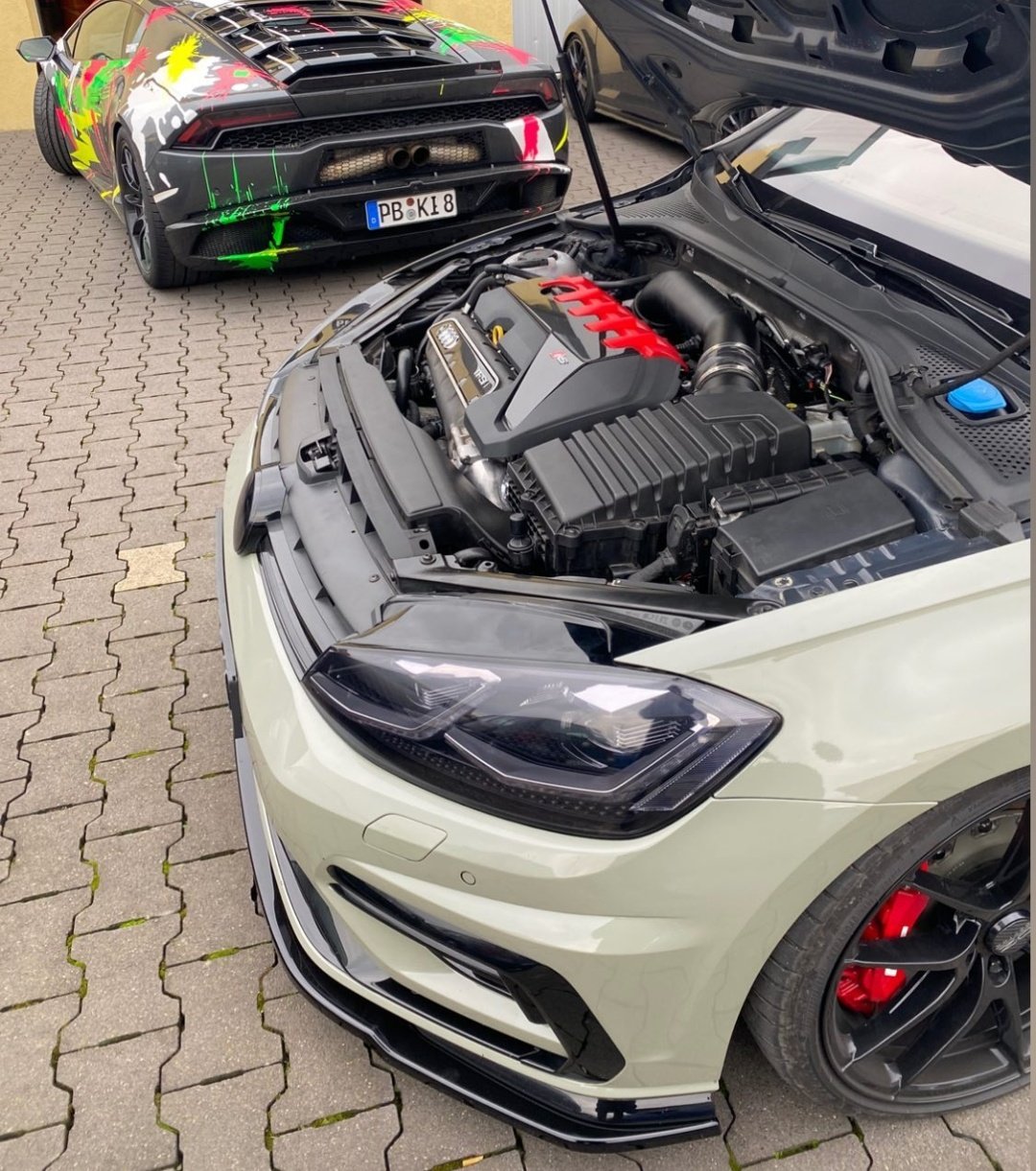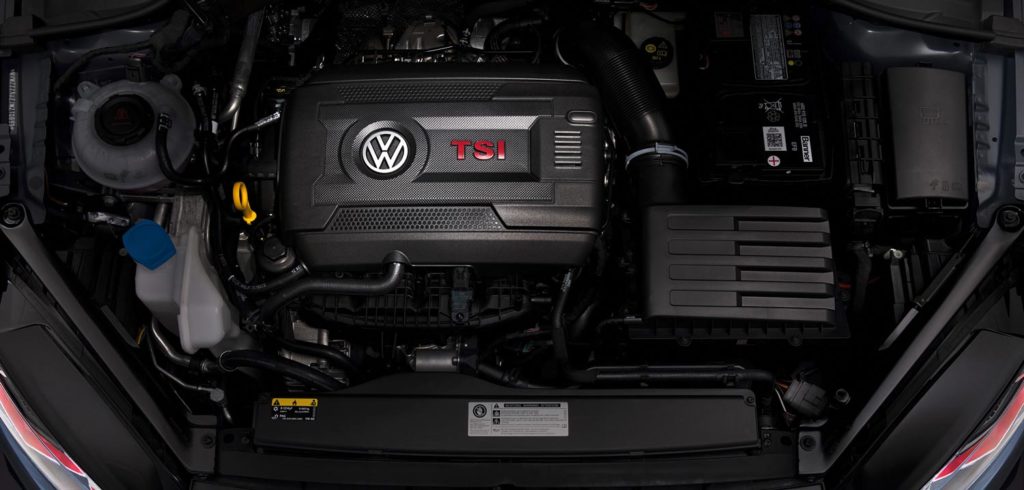Why the Golf 7 GTI Engine Stands Out in the World of Hot Hatches
Why the Golf 7 GTI Engine Stands Out in the World of Hot Hatches
Blog Article
Your Guide to the Golf 7 GTI Engine: Reliability and Upgrades
The Golf 7 GTI, outfitted with its 2.0-liter turbocharged inline-four engine, represents a balance of efficiency and reliability that interest enthusiasts and daily drivers alike. Comprehending the variables that add to its stability, alongside potential concerns and their remedies, is crucial for taking full advantage of the driving experience. Additionally, discovering various efficiency upgrades can significantly boost both power and effectiveness. The question continues to be: what certain upgrades can change your GTI into a genuinely extraordinary automobile while guaranteeing its durability?
Overview of the Golf 7 GTI Engine
The heart of the Golf 7 GTI is its 2.0-liter TSI engine, a turbocharged four-cylinder that delivers an impressive blend of power and efficiency. This engine creates a durable 220 horse power and 258 lb-ft of torque, permitting the automobile to speed up from 0 to 60 miles per hour in just 5.6 secs, showcasing its stylish character. The turbocharged design not only enhances efficiency however likewise optimizes fuel performance, making it a functional choice for day-to-day driving.
Integrating advanced innovation, the engine features direct gas injection, which improves combustion effectiveness and minimizes exhausts. In addition, the Golf 7 GTI is furnished with either a six-speed manual or a six-speed DSG dual-clutch transmission, supplying motorists with the adaptability to choose their chosen driving design. The automobile's front-wheel-drive layout, combined with a well-tuned suspension, makes certain nimble handling and a receptive driving experience.
Engine Integrity Aspects
Reliability is an essential aspect of any type of performance-oriented lorry, and the Golf 7 GTI's engine is no exception. Several factors add to the overall integrity of this very regarded powerplant, which is important for both daily driving and perky performance.
To Start With, the Golf 7 GTI is outfitted with a durable 2.0-liter turbocharged inline-four engine, recognized for its effective style and strong engineering. This engine features a forged steel crankshaft and light weight aluminum engine block, which provide exceptional toughness and toughness while lowering weight.
Secondly, normal maintenance plays a vital duty in enhancing engine dependability. Complying with the producer's preferred service intervals, utilizing high-grade lubricating substances, and replacing crucial parts such as stimulate filters and plugs can substantially extend engine life.
Furthermore, the quality of fuel utilized can additionally influence integrity. Premium fuel is advised to make certain ideal efficiency and minimize the danger of knocking or ignition.
Lastly, the vehicle's digital monitoring system continuously keeps track of engine criteria, enabling for real-time modifications to enhance performance and efficiency while protecting against potential issues. Collectively, these aspects highlight the Golf 7 GTI engine's credibility for reliability among lovers and day-to-day chauffeurs alike.
Common Concerns and Solutions
The Golf 7 GTI, while commemorated for its efficiency, is not without its difficulties. Among the most frequently reported concerns are engine oil usage and turbocharger failings, which can significantly impact automobile dependability. Recognizing these common problems and their options is important for keeping optimal engine efficiency.

Engine Oil Intake
While lots of fanatics appreciate the efficiency of the Golf 7 GTI, engine oil consumption can emerge as a noteworthy issue. Owners may see that their vehicles need more constant oil top-ups than expected, usually connected to various variables inherent in the engine's style and procedure.
One typical problem is the engine's straight fuel shot system, which can cause raised oil intake because of the combustion process. Furthermore, using high-performance driving habits can aggravate oil burn-off, specifically under hostile throttle conditions. Vehicle drivers may additionally experience oil leaks from seals and gaskets, which can contribute to minimized oil levels.
Routine oil adjustments making use of top notch artificial oil can assist keep ideal engine efficiency and longevity. If extreme consumption continues, it might be recommended to seek advice from a specialist technician to assess the engine for prospective interior problems, such as worn piston rings or shutoff seals.
Turbocharger Failings
Turbocharger failings can dramatically affect the performance of the Golf 7 GTI, leading to lessened power and efficiency. Common concerns related to the turbocharger include oil leaks, wastegate failing, and excessive shaft play. Oil leakages frequently come from used seals or damaged gaskets, which can lead to oil contamination and subsequent engine damages. Routinely checking these parts can aid recognize and minimize such issues early.
An additional common issue is wastegate failure, which can result in overboost or underboost problems. This not only impacts the automobile's efficiency yet can additionally bring about major engine damage if left uncontrolled. Upgrading to a more durable wastegate can boost integrity and performance.
Excessive shaft play suggests wear in the turbocharger's bearings, which can lead to a full turbo failing. Checking increase stress and listening for unusual noises can assist discover this issue early.
To avoid turbocharger failings, routine maintenance, including oil modifications and air filter replacements, is vital. Additionally, purchasing premium aftermarket elements might supply better integrity and efficiency, eventually boosting the driving experience of the Golf 7 GTI.
Performance Upgrades to Take Into Consideration
What efficiency upgrades can truly boost the driving experience of a Golf 7 GTI? To unleash the complete possibility of this iconic hot hatch, numerous targeted adjustments can improve power, dealing with, and overall driving pleasure.
One of the most efficient upgrades is a high-performance turbocharger. Replacing the supply system with an aftermarket option can considerably boost horse power and torque, providing a more thrilling acceleration experience. Complementing this upgrade with a performance intercooler helps keep ideal temperature levels, guaranteeing consistent power shipment.
Next, consider updating the exhaust system. A much less limiting exhaust not just boosts engine efficiency but also generates a more hostile visit this site audio that magnifies the vehicle's sporty character. Coupling this with a remapped ECU will certainly optimize fuel distribution and ignition timing, additional boosting efficiency.
Suspension upgrades, such as adjustable coilovers, can improve taking care of by lowering the vehicle's center of gravity and decreasing body roll. Furthermore, a collection of high-performance tires will certainly enhance grasp, enabling sharper cornering and boosted total stability.
With each other, these upgrades can change the Golf 7 GTI into a much more vibrant and awesome driving equipment, making every trip an unforgettable experience. golf 7 gti engine.
Recommended Upkeep Practices
Maintaining the Golf 7 GTI engine calls for interest to essential methods that make certain ideal performance and longevity. Regular oil modifications are important for engine wellness, while prompt timing belt replacement is important to stop possible failings. Carrying out these upkeep techniques will help maintain your car running smoothly and successfully.
Normal Oil Changes
Routine oil changes are important for the ideal efficiency and durability of the Golf 7 GTI's engine. Preserving a constant oil adjustment schedule ensures that the engine runs smoothly and efficiently. The suggested period for oil adjustments is usually every 5,000 to 10,000 kilometers, more information depending on driving conditions and the kind of oil utilized.
Making use of premium synthetic oil is essential as it supplies superior lubrication and thermal security compared to conventional oils. This is specifically essential for the Golf 7 GTI, which features a turbocharged engine that produces higher operating temperatures. Normal oil modifications assist to eliminate pollutants and sludge buildup, which can compromise engine efficiency and cause premature wear.
In addition, fresh oil enhances fuel effectiveness and reduces unsafe emissions, adding to a cleaner setting. Throughout the oil modification procedure, it is additionally a good idea to change the oil filter to ensure optimum filtering and avoid any particles from entering the engine. Adhering to these practices not just aids preserve the engine's stability but likewise protects the worth of the automobile, making normal oil alters an important facet of liable GTI possession.
Timing Belt Replacement
The timing belt is an essential component of the Golf 7 GTI's engine, responsible for synchronizing the rotation of the crankshaft and camshaft. This synchronization is vital for optimum engine performance and effectiveness. If the timing belt falls short, it can bring about disastrous engine damages, making prompt replacement critical.

When planning a timing belt substitute, it is recommended to likewise change the water pump and tensioner. These components operate in combination with the timing belt and frequently experience similar wear, making certain optimal efficiency and longevity. Making use of OEM components is advised for their reliability and compatibility with the Golf 7 GTI's engine.
Expert installation is very urged, as inappropriate installation can cause serious engine breakdowns. Regular upkeep of the timing belt not just safeguards the honesty of the engine however additionally improves the overall driving experience of the Golf 7 GTI. golf 7 gti engine. Prioritizing this task assists maintain automobile reliability and performance with time
Aftermarket Components and Modifications
Numerous fanatics transform to aftermarket alterations and components to boost the performance and appearances of the Golf 7 GTI. These upgrades can dramatically improve the automobile's responsiveness, managing, and general driving experience. Popular adjustments include high-performance air intakes, exhaust systems, and intercoolers, which can boost horse power and torque by optimizing air consumption and exhaust flow.
Suspension upgrades are additionally prevalent, with choices varying from decreasing springtimes to completely adjustable coilover sets that boost experience quality and cornering capability. Updated brakes, including performance pads and blades, can give much better stopping power, ensuring safety and control during spirited driving.
Aesthetic adjustments, such as aftermarket wheels, body packages, and customized lighting, allow proprietors to individualize their vehicles while preserving a flashy appearance. Engine tuning, whether with ECU remapping or standalone engine management systems, can open additional performance potential, making the GTI also much more thrilling to drive.
While aftermarket modifications can produce considerable advantages, it's necessary to select respectable brands and take into consideration the potential influence on service warranty and reliability. Proper installation and adjusting are important to make sure the longevity of the lorry while delighting in the improvements.
Enhancing Gas Performance
Improving fuel performance in the Golf 7 GTI can result in substantial price financial savings and a minimized ecological influence. Attaining better fuel economic situation calls for a combination of driving behaviors, maintenance methods, and critical modifications.
One reliable method is adopting a smooth driving design, avoiding fast velocity and heavy stopping, which can dramatically minimize fuel consumption. Keeping ideal tire stress is also critical; under-inflated tires can enhance moving resistance, leading to decreased efficiency. Regular servicing, consisting of engine tuning and air filter substitutes, ensures that the engine runs at peak efficiency, even more boosting fuel economic climate.
For those looking for upgrades, consider an efficiency song that concentrates on performance rather than large power. Eco-mode setups, if available, can change throttle action and shift factors to make best use of gas savings. Furthermore, lightweight aftermarket wheels can decrease weight and boost effectiveness without compromising performance.
Lastly, employing wind resistant improvements, such as a front splitter or back looter, can reduce drag at higher speeds, contributing to far important site better fuel economy. By implementing these alterations and techniques, Golf 7 GTI proprietors can delight in enhanced gas performance while preserving the automobile's perky driving features.
Final Thought
In verdict, the Golf 7 GTI engine exhibits a blend of performance and integrity, driven by a well-engineered 2.0-liter turbocharged inline-four. Different performance upgrades and aftermarket adjustments can enhance driving experience while maintaining stability.
The Golf 7 GTI, geared up with its 2.0-liter turbocharged inline-four engine, stands for an equilibrium of efficiency and integrity that appeals to fanatics and daily motorists alike. Regular oil adjustments using top notch synthetic oil can help preserve optimum engine performance and long life.Normal oil adjustments are crucial for the ideal efficiency and long life of the Golf 7 GTI's engine. Routine servicing, including engine adjusting and air filter replacements, makes certain that the engine operates at peak performance, further improving gas economic climate.

Report this page